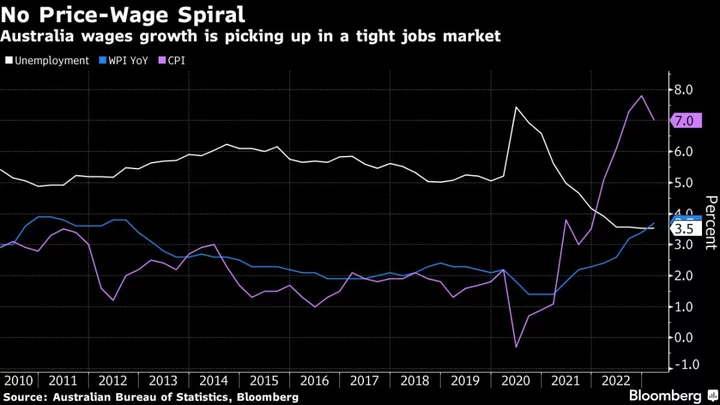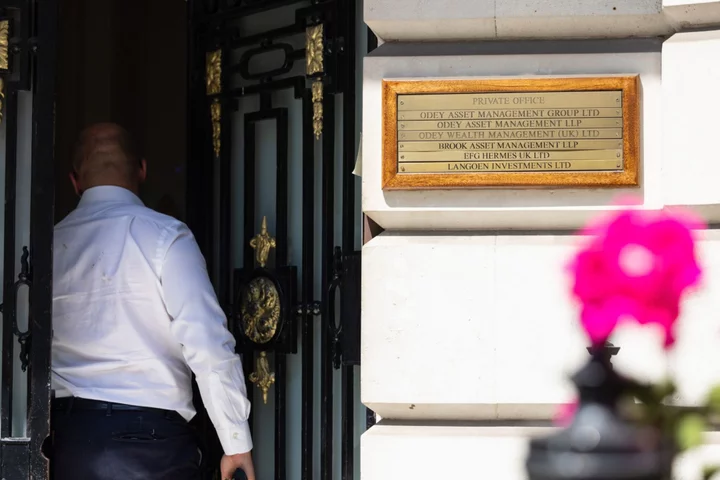Israel’s parliament passed a national two-year budget that includes billions of dollars in funding for West Bank settlements and religious programs, stabilizing Prime Minister Benjamin Netanyahu’s right-wing coalition. The shekel weakened as critics warned the plan would suppress rather than spur economic growth.
Under the Likud party’s agreements with its governing partners, the cabinet approved an unprecedented 13.7 billion shekels ($3.7 billion) in discretionary spending. Much of the outlay — which exceeds the total 2023 budget for public hospitals or state-funded higher education — will finance programs prized by ultra-Orthodox Jews. A smaller amount was earmarked for settlements on land the Palestinians want for their own state.
The shekel fell against the US dollar for a third day Wednesday, reaching a three-year low, amid concern the new spending plan could harm economic growth. The currency, which stood out in the previous decade by gaining against the dollar, is one of the worst performers in emerging markets this year, having lost 5.6%. Options traders boosted bets on further losses, sending one-month risk reversals up by the most since March.
Israel’s benchmark TA-35 stocks index dropped 0.8%, heading for a fifth consecutive day of declines.
Coalition Stability
The passage of the budget marks a major milestone for Netanyahu’s government, the most religious and nationalist in the country’s history. It came in the early morning hours after threats from partners to break up the coalition. Asked on television to comment, Netanyahu said, “It means that this coalition knows how to work. We will be here for four years.”
This frees his government to pursue its agenda, including a judicial overhaul plan that has deeply divided the country and worried allies in Washington, London and Paris. The plan was suspended in March in response to ferocious mass protests. After the trillion-shekel budget was approved, Netanyahu said the judicial overhaul plan would be revived through negotiations with the opposition.
Israel’s Economic Growth Slows to 2.5% Amid Judicial Overhaul
The additional shekels for the ultra-Orthodox come at a time of stubbornly high inflation and declining economic growth. Few ultra-Orthodox serve in the military, and nearly half of their men study religious texts full time rather than work, thanks to taxpayer-provided allowances. Their schools aren’t required to teach subjects like math, science and English.
While the discretionary spending accounts for just 1.4% of the budget, Finance Ministry budget director Yogev Gardos has warned that the allocations will hurt the economy by further encouraging ultra-Orthodox men to stay out of the labor force and diminishing the earning capacity of a community mired in poverty.
Economist Warnings
An open letter from 300 leading economists including former senior Finance Ministry and Bank of Israel officials warned of “significant long-term damage to Israel’s economy and future as a thriving state.”
What to Know About Israel’s New Far-Right Government: QuickTake
“Instead of building a future, they’re burying it,” said Dan Ben David, president of the Shoresh Institution for Socioeconomic Research and a professor at Tel Aviv University.
Hasnain Malik, a Dubai-based strategist at Tellimer, a provider of research and data on emerging markets, said Wednesday’s drop in markets was a sign of things to come.
“Risks in Israel are on the increase and this is not temporary,” he said. “The divisive impact of judicial reform could be long-lasting, the demographic tilt towards the ultra-Orthodox will continue, and, if it deepens, the Saudi-Iran detente all push country risk in the wrong direction. A government united by ensuring the survival of Netanyahu and promoting the interests of the ultra-Orthodox community is unlikely to prioritize optimal economic management or social cohesion.”
The ultra-Orthodox, who make up 13.5% of the population, argue that Jewish religious values are more important than secular ones and that study of Torah, or Bible, protects the state.
Torah study is the ultimate justification for the Jewish people’s right to inhabit the land of Israel, United Torah Judaism lawmaker Moshe Roth was quoted as saying in the Times of Israel.
“Without the Torah, there is no Israel at all,” Roth said. “Why else did we come back to this ancient land called the land of Israel? Who gave it to us, under which law is this land ours? It all comes back to the Torah.”
Because Israel’s political system is so fragmented, no single party has ever able been able to form a government, and ultra-Orthodox legislators have often been kingmakers. But the scope and sectoral nature of the current coalition agreements are unusual. The previous government’s coalition agreements for 2022 were priced at 2 billion shekels.
“Instead of handing out 14 billion shekels in political, sectoral funding, the government should have allocated 14 billion shekels to bring down the cost of living,” the previous prime minister and current opposition leader, Yair Lapid, posted on Twitter last week.
--With assistance from Netty Ismail and Srinivasan Sivabalan.
(Updates with analyst comment from 10th paragraph; adds chart and market details after second paragraph)









